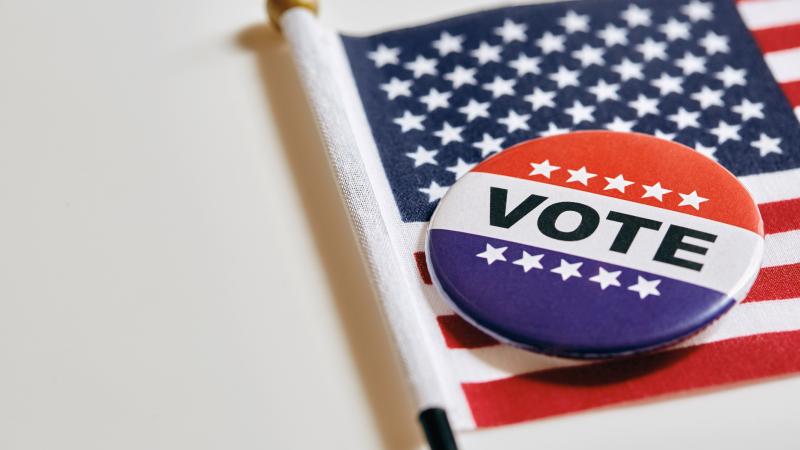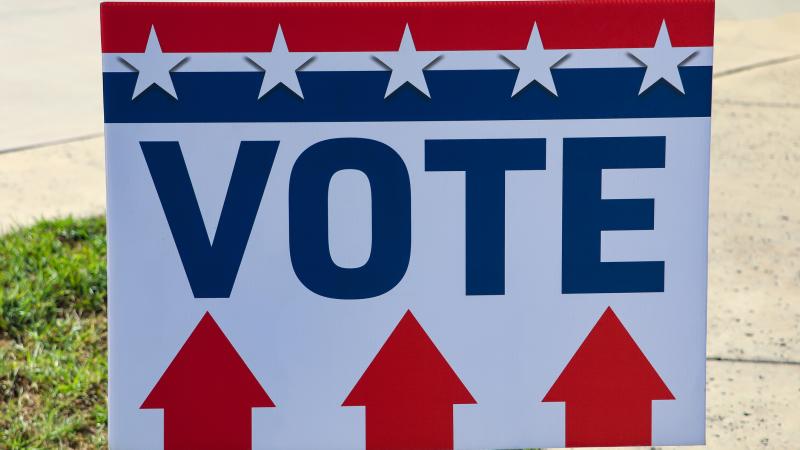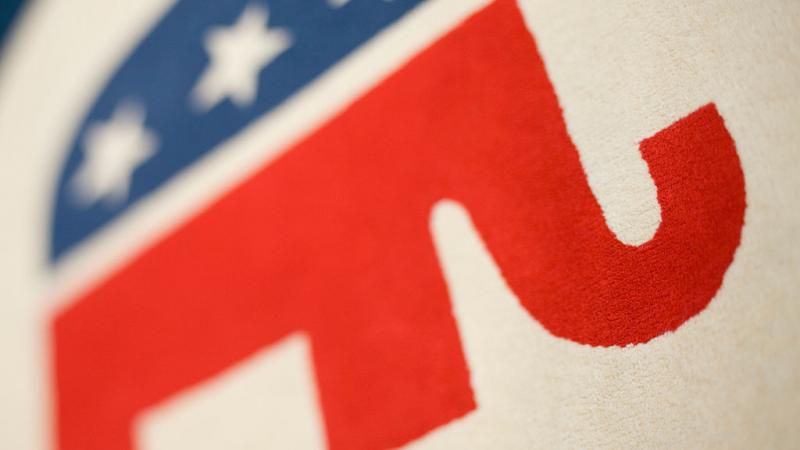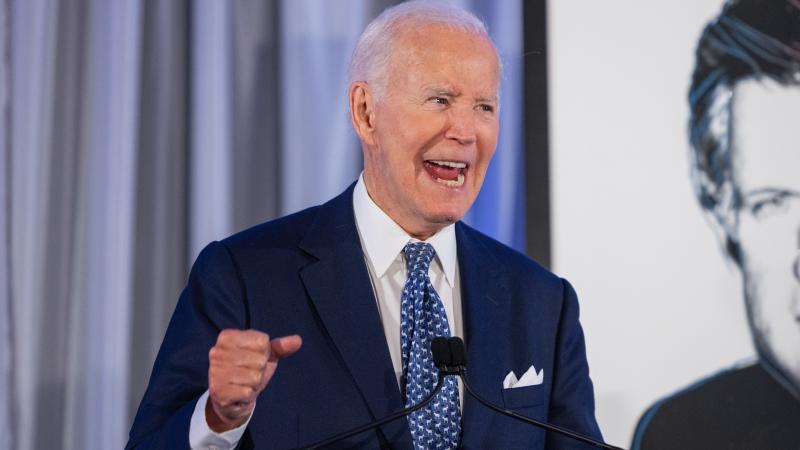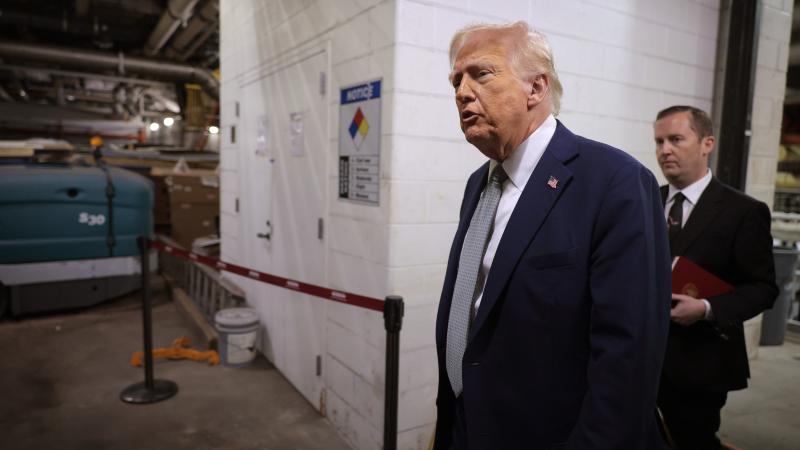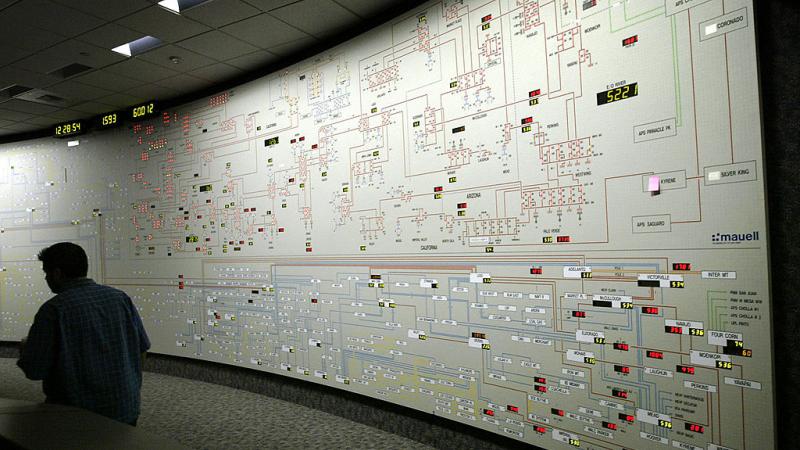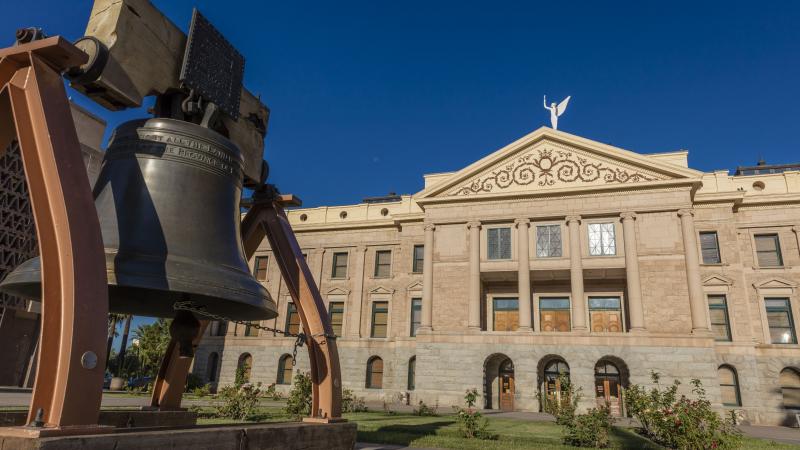Mamdani’s dad claimed ‘moral equivalence’ between U.S. and Al-Qaeda, compared Afghan war to 9/11
Nepo babies of the world, unite! A man is not his father, but Zohran Mamdani's views on 9/11, terrorism, and Western culture may have been informed by the radical claims made in a book by his father, Mahmood Mamdani, a well-off, prominent left-wing academic.
Zohran Mamdani’s father Mahmood — a prominent leftist in his own right — penned a book in the wake of the terrorist attacks of 9/11 where he argued that there was a “moral equivalence” between the United States and al-Qaeda, compared the U.S. invasion of Afghanistan to the terrorist destruction of the World Trade Center, blamed the U.S. for 9/11 and al-Qaeda, and much more.
Mahmood Mamdani is a longtime tenured Columbia University professor, where the school says he "specializes in the study of colonialism, anti-colonialism, and decolonization." Raised in Uganda and of Indian descent, the likely future mayor’s father also previously taught at the University of Dar-es-Salaam in Tanzania, Makerere University in Uganda, and the University of Cape Town in South Africa. The leftwing academic wrote a 2004 book — Good Muslim, Bad Muslim — which may help explain his son's views on terrorism.
His son, currently the odds-on favorite to be the next mayor of New York City, is currently mired in controversy over his praise for pro-jihadist Brooklyn imam Siraj Wahhaj, his close association with controversial Palestinian-American activist Linda Sarsour, his past support for Muslim Americans convicted in a terrorist financing case over their support for Hamas, his open animus for the state of Israel, and more.
A review of the book by Just the News reveals that Mahmood holds views about 9/11 and America that may raise eyebrows, including claiming that there are many similarities between the U.S. and al-Qaeda, that American foreign policy is ultimately to blame for the devastating attacks which killed nearly 3,000 people, that suicide bombings should not be viewed as barbaric, and much more. Zohran has said in the past that his father’s political views have helped inform his own, and his mother said this year that her son had absorbed what he learned at home.
Foundation calls Mamdami's claims "deceptive discourse"
Mahmood Mamdami wrote in his 2004 book that there was "growing common ground between the perpetrators of 9/11 and the official response to it" by the U.S.; claimed there was an "eerie similarity between the American bombing of Iraq and Afghanistan and the al-Qaeda bombing of embassies in Nairobi and Dar-es-Salaam and of the Twin Towers on 9/11"; asserted that there was a "moral equivalence between the two" (the U.S. and al-Qaeda); and argued that suicide bombing should not be “stigmatized as a mark of barbarism."
Clifford May, the president of the Foundation for Defense of Democracies, told the John Solomon Reports podcast on Monday that “it’s frightening — the idea that somebody who is both a socialist and is, I would say, an Islamist who could be mayor of New York City. … It’s really frightening.”
“It was really the beginning of this whole discourse — very deceptive — on decolonialism and the West and all of that. And in a way, Mamdani’s father, Mahmood Mamdani, he is a disciple of that. His book is called Good Muslim, Bad Muslim,” May said. “Well, that’s not the debate for anybody. Nobody is talking about good Muslims, bad Muslims. We are talking about Muslims who want to cut your head off because you’re an infidel or a Jew or a Christian, and we’re talking about Muslims who don’t want to do that and who we can get along with… So it’s a very bogus book.”
Zohran also did his best to explain away his use of the phrase “globalizing the intifada” this summer. “To me, ultimately, what I hear in so many is a desperate desire for equality and equal rights in standing up for Palestinian human rights,” Mamdani said on The Bulwark podcast this summer. He refused to condemn the phrase on Meet the Press, saying he did not want to "police speech." He later told an influential group of business leaders he would “discourage” the use of the phrase, according to The New York Times.
Despite this, Zohran has denied ever supporting global jihad and gave a press conference last week arguing that many of the criticisms aimed at him were rooted in Islamophobia.
Mahmood did not immediately respond to a request for comment sent to him through his personal Columbia University email. Zohran did not immediately respond to a request for comment sent to him through his campaign.
Zohran admits that his father has informed his own political philosophy
The Democratic nominee to be mayor of NYC has admitted in the past that he is quite familiar with his father’s work and that his father’s political philosophy informed his own.
Zohran joined the AirGo podcast in 2017, and the podcast host mentioned his father’s book and asked Zohran about his father’s writings. “The first time I properly read something was in college. I grew up going to his lectures, book talks, book launches, that sort of stuff,” Zohran said. “So I heard a lot of the arguments from the main pieces.”
The future Democratic mayoral nominee said his favorite book by his father was Citizen to Refugee.
Little Africa News interviewed Zohran in October 2024 — many months before he became the Democratic nominee — and he reportedly admitted that his political aspirations were informed by his father’s politics. “Being Ugandan is a great point of pride for me,” Mamdani told the outlet, reportedly “emphasizing how his father’s choice of middle name—Kwame, after Ghanaian leader Kwame Nkrumah—instilled in him the values of Pan-Africanism.”
Zohran reportedly “recounted a pivotal moment from his father’s past,” noting that “when his father arrived in the United States as a scholarship student from Uganda, he participated in a civil rights march organized by the Student Nonviolent Coordinating Committee,” which was “a defining experience that shaped his [Mahmood’s] understanding of solidarity and struggle.”
“If you are facing a struggle in your life, it’s not enough to win that struggle; you have to make sure no one else faces that struggle,” Mamdani reportedly quoted as “his father’s guiding philosophy, which now informs his political aspirations.”
Mamdani: "My father raised me with a real sense of being African"
The Intelligencer interviewed Zohran in May — shortly before he became the Democratic mayor nominee — and reported that he “describes himself as an Indian Ugandan New Yorker.”
“My father raised me with a real sense of being African, being proud of that heritage,” the outlet quoted him as saying. “I grew up with a reverence for Mandela, Desmond Tutu. They’re a significant part of informing my sense of universalism and consistency and what it means to fight for equal rights.”
The New York Times interviewed Zohran’s father and mother in June, saying that they “helped shape Zohran Mamdani’s politics. The outlet reported that “both parents emphasized that their son … has not turned to them for political advice.” But the father and mother “disagreed about how much their work had influenced their son’s worldview.”
“He’s his own person,” Mahmood said. “Now, of course what we do as his parents is part of the environment in which he grew up, and he couldn’t help but engage with it. That doesn’t mean anything is reflected back on us.”
“I don’t agree!” Zohran’s mother said. “Of course the world we live in, and what we write and film and think about, is the world that Zohran has very much absorbed.”
Mahmood Mamadani: U.S. and Al-Qaeda are “morally equivalent”
Mahmood repeatedly compared the U.S. to terrorist groups such as al-Qaeda throughout the book, going as far as to argue that the U.S. and al-Qaeda were “morally equivalent” — and even hinting that America was worse because it was more powerful than the jihadist group.
Passages from the book repeatedly show Mamdani’s father attempting to draw an equivalence between the U.S. and terrorists, between then-President George W. Bush and al-Qaeda founder Osama bin Laden, and between the U.S.’s post-9/11 response and the terrorist attacks carried out by al-Qaeda.
“The events that are 9/11 present the world with a particularly difficult political challenge, even if this challenge appears the most immediate for Muslims,” Mahmood wrote. “Both the American establishment led by President Bush and militants of political Islam insist that Islam is a political, and not simply a religious or cultural, identity. Both are determined to distinguish between ‘good Muslims’ and ‘bad Muslims,’ so as to cultivate the former and target the latter. Should 9/11 and its aftermath caution us against reading a person’s politics from his or her culture and religion?”
Mahmood added: “I know of no one inspired by Osama bin Laden for religious reasons. Bin Laden is a politician, not a theologian. Those who embrace him do so politically. Both Bush and bin Laden employ a religious language, the language of good and evil, the language of no compromise: you are either with us or against us. Both deny the possibility of a third response. For both, political loyalty comes before political independence.”
Mamdani’s father attempted to argue that the U.S. response to 9/11 was akin to the terrorist attacks themselves.
“Few would fail to notice the growing common ground between the perpetrators of 9/11 and the official response to it called ‘the war on terror.’ Both sides deny the possibility of a middle ground, calling for a war to the finish. Both rally forces in the name of justice but understand justice as revenge,” Mahmood wrote. “If the perpetrators of 9/11 refuse to distinguish between official America and the American people, target and victim, ‘the war on terror’ has proceeded by dishing out collective punishment, with callous disregard for either ‘collateral damage’ or legitimate grievances. Both practices are likely to nurture the spirit of revenge.”
The father of the NYC mayoral nominee again compared the U.S. and al-Qaeda, and also contended that there was a “similarity” between al-Qaeda crashing hijacked planes into the World Trade Center and the U.S. invading Taliban-ruled Afghanistan — which was sheltering bin Laden and other leaders of the al-Qaeda network responsible for 9/11 — after the deadly attacks.
“Finally, it is worth reflecting on the two adversaries in the war on terror: the United States and al-Qaeda. Both are veterans of the Cold War, in fact on the same side, and both have been marked indelibly by it. Both see the world through lenses of power. Both are informed by highly ideological worldviews, which each articulates in a highly religious political language, one that is self-righteous. The righteousness of self goes alongside the demonization of the other as evil,” Mahmood wrote. “The point about ideological language, whether its idiom is religious or secular, is that it justifies the use of power with impunity. In the contest for power, each has eyes for none but the other. There is an eerie similarity between the American bombing of Iraq and Afghanistan and the al-Qaeda bombing of embassies in Nairobi and Dar-es-Salaam and of the Twin Towers on 9/11: both testify that, when it comes to the contest for power, the rest of the world exists only as collateral.”
Al-Qaeda’s twin bombings of U.S. embassies in Africa in 1998 resulted in the deaths of 224 people, including twelve Americans. Nineteen al-Qaeda terrorists crashed hijacked planes into the World Trade Center buildings in New York City, into the Pentagon, and into a field near Shanksville in Pennsylvania after a revolt by the passengers overpowered the terrorists controlling that plane. The death toll that September 2001 day was steep: nearly 3,000 people.
The U.S. invaded Afghanistan in the wake of 9/11, and toppled Iraqi dictator Saddam Hussein in 2003.
Mamdani’s father concluded: “This, however, is where the comparison must end, for the moral equivalence between the two does not translate into a political equivalence. There is no denying the global character of American power, before which the network known as al-Qaeda can only be described in the diminutive.”
Rep. Elise Stefanik, R-N.Y., told Just the News this week that “Zohran Mamdani is a jihadist, pro-Hamas candidate who endangers New York as he campaigns with co-conspirators of terrorist attacks that killed New Yorkers.”
Stefanik, who is reportedly considering challenging New York’s Democratic Gov. Kathy Hochul, who recently appeared on stage with Mamdani to stump for the democratic socialist, added that “Mamdani has stated that his parents’ influence is significant in shaping his life and world view and that includes his father’s antisemitism and sympathy for deadly suicide bomber terrorists. Mamdani must be defeated to save New York.”
Mahmood blames America for 9/11
Mamdani’s father also repeatedly argued that America’s Cold War policy was responsible for al-Qaeda’s emergence, that bin Laden and other jihadist terrorists were an “invention” and “creation” of the CIA, and that 9/11 would not have happened if the U.S. had “demilitarized” and pursued a “peace dividend” after the fall of the Soviet Union.
Mahmood wrote that “the Islamist terror that we are witnessing today is more a mutation than an outgrowth of Islamic history, the result of a triple confluence: ideological, organizational, and political.” He argued that the first element was the result of Muslim thinkers and Communist ideology, but that the second two elements were the fault of the U.S.
“The ideological element was the product of an encounter between Islamist intellectuals … and different Marxist-Leninist ideals that embraced armed struggle in the postwar period,” the mayoral candidate’s father wrote. “The organizational element was a direct consequence of the American decision to organize the Afghan jihad as a quasi-private international crusade. The political element is a consequence of the demonization of Islam and its equation with terrorism, a tendency that emerged after the Cold War and gathered steam after 9/11. This demonizing point of view questions whether a historically grounded modernity is even possible in the postcolonial Islamic world.”
Mahmood claimed that “the best-known CIA-trained terrorist was, of course, Osama bin Laden” and argued that bin Laden was a “distinguished CIA creation” and a “CIA invention.”
The CIA, with the help of Pakistani intelligence services, did indeed provide significant support to the Afghan mujahideen in their fight against the Soviet Union, but the CIA and others have long denied that the U.S. provided assistance to foreign Arab fighters like al-Qaeda.
Longtime journalist Peter Bergen wrote in The Rise and Fall of Osama bin Laden that “there is simply no evidence for the common myth that bin Laden and his Afghan Arabs were supported by the CIA financially. Nor is there any evidence that CIA officials at any level met with bin Laden or anyone in his circle. Yet the notion that bin Laden was a creation of the CIA is widespread.”
Investigative journalist Richard Miniter, the author of Losing bin Laden, said the relevant CIA station chiefs from the 1980s denied ever helping bin Laden.
“In the course of researching my book on Bill Clinton and bin Laden, I interviewed Bill Peikney, who was CIA station chief in Islamabad from 1984 to 1986, and Milt Bearden, who was CIA station chief from 1986 to 1989. These two men oversaw the disbursement for all American funds to the anti-Soviet resistance,” Miniter wrote. “Both flatly denied that any CIA funds ever went to bin Laden. They felt so strongly about this point that they agreed to go on the record, an unusual move by normally reticent intelligence officers.”
Bin Laden’s longtime deputy, Ayman al-Zawahiri, also denied CIA support for al-Qaeda, reportedly writing, “The truth that everyone should learn is that the United States did not give one penny to the [Arab] mujahideen. Is it possible that Osama bin Laden, who, in his lectures in the year 1987, called for the boycott of U.S. goods … is U.S. agent in Afghanistan?”
Speaking of the U.S. support for fighters against the Soviet invasion of Afghanistan during the 1980s, Mahmood wrote in his book that “the Islamic world had not seen an armed jihad for nearly a century, but now the CIA was determined to create one in service of a contemporary political objective.”
Contrary to the claim by Mamdani’s father, armed and militant jihadist groups did indeed exist in the 20th century, prior to the 1980s. The Muslim Brotherhood was founded in Egypt in 1928 and helped inspire many of the terrorist offshoots which would emerge in the ensuing decades.
Egyptian Islamic Jihad — which counted Zawahiri as one of its leaders prior to him merging his faction with al-Qaeda — was active in the 1970s, prior to the Soviet invasion and U.S. intervention, and the group successfully assassinated Egyptian President Anwar Sadat in 1981. The Islamic Group was another jihadist group formed in Egypt in the 1970s. Palestinian Islamic Jihad was formed in Gaza in 1979 as an offshoot of the Muslim Brotherhood, and it has been active in attacking Israel ever since. The successful Islamic Revolution in Iran in 1979 brought the ayatollahs to power and led to the formation of Hezbollah in the early 1980s.
Mamdani’s father also wrote that “I argue that rather than illustrating a deep-seated clash of civilizations, 9/11 came out of recent history, that of the late Cold War.” Mahmood also contended that “had the United States ended the Cold War with demilitarization and a peace dividend, 9/11 would not have happened.”
Says suicide bombings should not be “stigmatized"
The father of the democratic socialist leading in the NYC mayoral polls also wrote that suicide bombings should not be “stigmatized as a mark of barbarism” and suggested that it was the fault of Israeli government policy that jihadist suicide bombings grew in popularity.
“I have often wondered whether the label ‘suicide bombing’ accurately captures either the practice or the motivation behind it. Clearly, the prime objective of the suicide bomber is not to terminate his or her own life but that of others defined as enemies. We need to recognize the suicide bomber, first and foremost, as a category of soldier,” Mahmood wrote. “Does not the suicide bomber join both aspects of our humanity, particularly as it has been fashioned by political modernity, in that we are willing to subordinate life—both our own and that of others—to objectives we consider higher than life? Suicide bombing needs to be understood as a feature of modern political violence rather than stigmatized as a mark of barbarism.”
Mamdani’s father added: “The danger of a moral discussion by itself (how can any culture condone suicide) is that it quickly turns into a replay of Culture Talk, stereotyping individuals and preventing any deliberation about alternative strategies. Thus the need to combine a moral discussion with a broad historical and political one.”
Mahmood also argued that “it is the spectacular expansion of Israeli settlements in the West Bank and Gaza after the Six-Day War of 1967, and particularly after the 1993 Oslo talks, that explains the context that produced the suicide bomber.”
Mahmood hates the concept of “Good Muslims” and “Bad Muslims”
Mamdani’s father said that “this book grew out of a talk at Riverside Church on the Upper West Side of New York City in the weeks after 9/11” and argued that “to bear an identifiably Muslim name then was to be made aware that Islam had become a political identity in post-9/11 America.” Mahmood wrote that “I set about trying to understand the modern tendency to politicize culture and, in that context, the forging of political Islam and political terror during the Cold War.”
Mahmood contended that “Culture Talk after 9/11, for example, qualified and explained the practice of ‘terrorism’ as ‘Islamic.’ ‘Islamic terrorism’ is thus offered as both description and explanation of the events of 9/11. It is no longer the market (capitalism), nor the state (democracy), but culture (modernity) that is said to be the dividing line between those in favor of a peaceful, civic existence and those inclined to terror.”
Mamdani’s father also repeatedly expressed displeasure for Bush’s alleged framing of the war on terrorism, claiming that Bush had sought to pit “Good Muslims” against “Bad Muslims.”
Bush repeatedly praised Islam as a religion of peace and sought to frame al-Qaeda terrorists as twisters of the Islamic faith, both in the immediate days after 9/11 and for years afterward.
“Our war is against evil, not against Islam,” Bush said in September 2001. “There are thousands of Muslims who proudly call themselves Americans, and they know what I know — that the Muslim faith is based upon peace and love and compassion. The exact opposite of the teachings of the al Qaeda organization, which is based upon evil and hate and destruction.”
Bush added that month: “The terrorists are traitors to their own faith, trying, in effect, to hijack Islam itself. The enemy of America is not our many Muslim friends; it is not our many Arab friends. Our enemy is a radical network of terrorists, and every government that supports them.”
“The face of terror is not the true faith of Islam. That's not what Islam is all about. Islam is peace. These terrorists don't represent peace. They represent evil and war,” Bush said in December 2001.
Bush would repeat this mantra long after.
“Listening to the public discussion in America after 9/11, I had the impression of a great power struck by amnesia,” Mahmood wrote in his book. “Acknowledging the epochal significance of the event should not necessarily mean taking it out of a historical and political context. Unfortunately, official America has encouraged precisely this. After an unguarded reference to pursuing a ‘crusade,’ President Bush moved to distinguish between ‘good Muslims’ and ‘bad Muslims.’”
Mamdani’s father added: “From this point of view, ‘bad Muslims’ were clearly responsible for terrorism. At the same time, the president seemed to assure Americans that ‘good Muslims’ were anxious to clear their names and consciences of this horrible crime and would undoubtedly support ‘us’ in a war against ‘them.’ But this could not hide the central message of such discourse: unless proved to be ‘good,’ every Muslim was presumed to be ‘bad.’ All Muslims were now under obligation to prove their credentials by joining in a war against ‘bad Muslims.’”
Mahmood concluded: “There are no readily available ‘good’ Muslims split off from ‘bad’ Muslims, which would allow for the embrace of the former and the casting off of the latter, just as there are no ‘good’ Christians or Jews split off from ‘bad’ ones. The presumption that there are such categories masks a refusal to address our own failure to make a political analysis of our times.”
Mamdani seeks to undercut unifying concepts like “Judeo-Christian” & “the West”
The book by Zohran’s father also slammed America and its history and sought to undercut the logic and history behind unifying concepts such as “Judeo-Christian” and “the West.”
“America was built on two monumental crimes: the genocide of Native Americans and the enslavement of African Americans,” Mahmood wrote. “The United States tends to memorialize other peoples’ crimes, not its own—to seek a high moral ground as a pretext to ignore real issues.”
Mahmood said that 9/11 should be turned “into an opportunity to reflect on America’s place in the world.” He also argued that “the Cold War came to an end with the subduing of one protagonist, the Soviet Union” but that “humanity is now left with a challenge: how to subdue and hold accountable the awesome power that the United States built up during the Cold War.”
Zohran’s father also took aim at the “Judeo-Christian” concept, arguing, “The idea of a single Judeo-Christian tradition is mainly a post-Holocaust idea with weak historical depth. It is post-Holocaust America’s antidote to anti-Semitism. Contemporary America is a multicultural and multireligious political community that has yet to come to grips with its settler origins.”
Mahmood also repeatedly sought to cast doubt on the idea that “the West” or “Western civilization” were useful terms describing actual things, including writing, “Can there be a self-contained history of Western civilization? Historians have been chipping away at this claim in a number of fields, ranging from the development of science to that of society.”
GOP recoils at thought of Mamdani taking the reins in NYC
Rep. Andy Ogles, R-Tenn., sent a June letter to Attorney General Pam Bondi calling for an investigation, tweeting, “Mamdani is an antiSemitic, socialist, communist who will destroy the great City of New York. He needs to be DEPORTED. Which is why I am calling for him to be subject to denaturalization proceedings.”
Rep. Randy Fine, R-Fla., argued this month that federal investigators should “review every naturalization of the past 30 years – starting with Mamdani.”
“I just think we need to take a hard look at how these folks became citizens, and if there is any fraud or any violation of the rules we need to denaturalize and deport,” Fine told the New York Post, saying of Mamdani that “I know that there’s a lot of us that are very, very concerned about the enemy within – people who have come to this country to become citizens, to destroy it.”
Ogles tweeted on Tuesday that “I have just sent another letter to @AGPamBondi urging her to investigate Zohran Mamdani’s naturalization documents. Mamdani could very well be made mayor of NYC in less than two weeks. We have no time to waste.”
The Facts Inside Our Reporter's Notebook
Links
- mired in controversy
- Good Muslim, Bad Muslim
- said
- said
- president
- podcast
- Edward Said
- book
- rooted in Islamophobia
- joined
- interviewed
- reported
- interviewed
- said
- said
- twin bombings
- hijacked planes
- appeared on stage
- wrote
- wrote
- reportedly writing
- founded
- active
- formed
- formed
- formation
- repeatedly praised
- said
- added
- said
- repeat this mantra
- letter
- argued
- told
- tweeted
